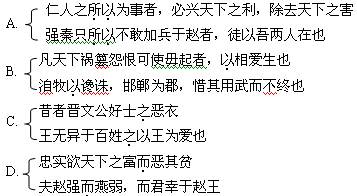B
My family and I lived across the street from Southway Park since I was four years old. Then just last year the city put a chain link fence around the park and started bulldozing (用推土机推平) the trees and grass to make ways for a new apartment complex. When I saw the fence and bulldozers, I asked myself, "Why don’t they just leave it alone"
Looking back, I think what sentenced the park to oblivion (被遗忘) was the drought (旱灾) we had about four years ago. Up until then, Southway Park was a nice green park with plenty of trees and a public swimming pool. My friends and I rollerskated on the sidewalks, climbed the trees, and swam in the pool all the years I was growing up. The park was almost like my own yard. Then the summer I was fifteen the drought came and things changed.
There had been almost no rain at all that year. The city stopped watering the park grass. With- in a few weeks I found myself living across the street from a huge brown desert. Leaves fell off the park trees, and pretty soon the trees started dying, too. Next, the park swimming pool was closed. The city cut down on the work force that kept the park, and pretty soon it just got too ugly and dirty to enjoy anymore.
As the drought lasted into the fall, the park got worse every month. The rubbish piled up or blew across the brown grass. Soon the only people in the park were beggars and other people down on their luck. People said drugs were being sold or traded there now. The park had gotten scary, and my mother told us kids not to go there anymore.
The drought finally ended and things seemed to get back to normal, that is, everything but the park. It had gotten into such bad shape that the city just let it stay that way. Then about six months ago I heard that the city was going to "redevelop" certain worn-out areas of the city. It turned out that the city had planned to get rid of the park, sell the land and let someone build rows of apartment buildings on it.
The chain-link fencing and the bulldozers did their work. Now we live across the street from six rows of apartment buildings. Each of them is three units high and stretches a block in each direc- tion. The neighborhood has changed without the park. The streets I used to play in are jammed with cars now. Things will never be the same again. Sometimes I wonder, though, what changes another drought would make in the way things are today.
The last sentence of the passage implies that if another drought came,()
A. the situation would be much worse
B. people would have to desert their homes
C. the city would be fully prepared in advance
D. the city would have to redevelop the neighborhood
参考答案:A
解析:
根据最后一段可知,现在公园被拆除建起了楼房,居住环境改变了,假如再次发生旱灾,情况会变得更加糟糕,树林和绿草都没有了,更不利于保留水分,故选A项。 画线句句意:然而,有时候我考虑,像现在这样下去,如果再次发生旱灾的话会有什么变化呢。

